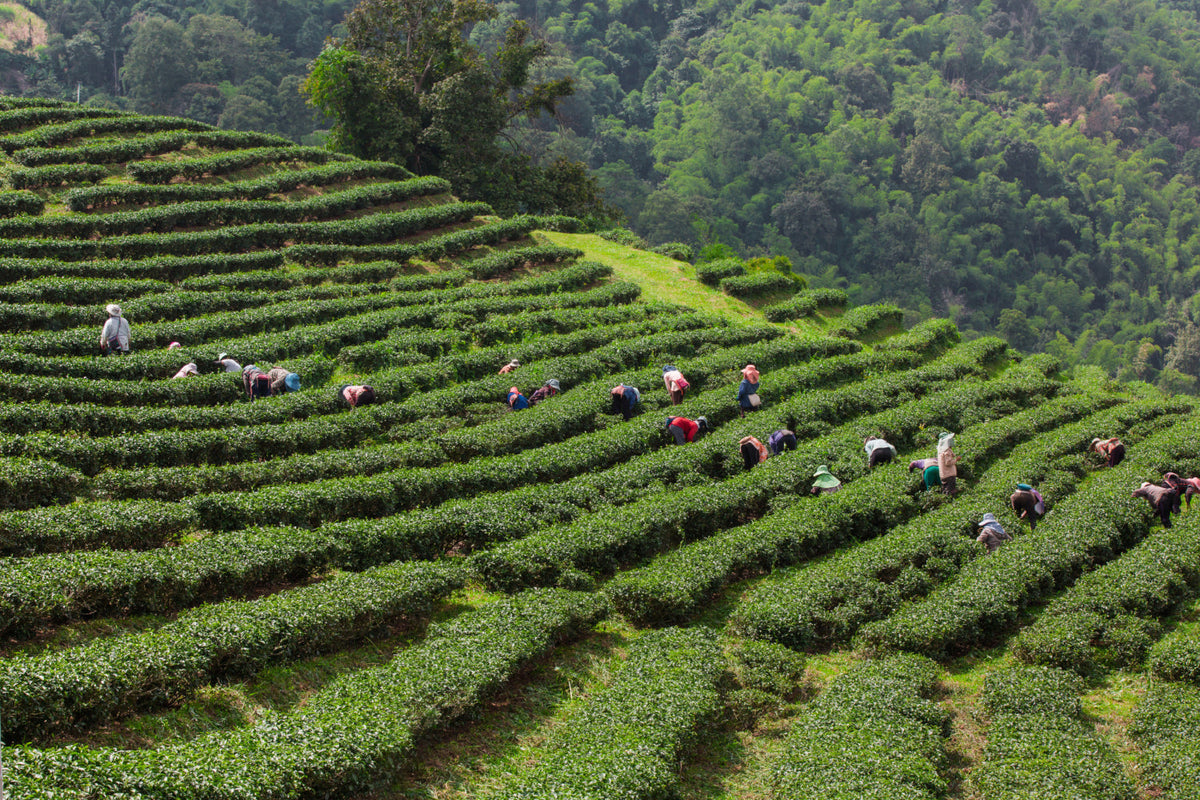Darjeeling Black Tea Benefits: A Closer Look at This Distinctive Brew

Darjeeling black tea is often regarded for its delicate flavor and unique growing conditions.
Cultivated in the Himalayan foothills of India, it stands apart from other black teas in both taste and character.
Beyond its reputation for quality, Darjeeling black tea also offers a range of natural health benefits that are supported by its composition.
This article explores those benefits, as well as what makes Darjeeling tea a distinct choice among black teas.
What Is Darjeeling Black Tea?
Darjeeling tea is produced in a small region in West Bengal, India.
The high elevation, cooler climate, and specific soil conditions contribute to its lighter body, floral notes, and signature muscatel flavor.
While it is classified as a black tea, Darjeeling is often less oxidized than traditional black teas, resulting in a more delicate flavor profile.
Health Benefits of Darjeeling Black Tea
Several factors contribute to Darjeeling’s potential health advantages, most of which are tied to its antioxidant and polyphenol content.
Rich in Antioxidants
Darjeeling black tea contains polyphenolic compounds, including catechins, theaflavins, and thearubigins.
These antioxidants help neutralize free radicals, which may support cellular health and reduce oxidative stress over time.
A study from the National Institutes of Health notes that regular intake of polyphenols from black tea can contribute to overall cardiovascular and metabolic health.
Supports Heart Health
The flavonoids found in Darjeeling tea may contribute to improved heart health by:
-
Supporting healthy blood vessel function
-
Assisting in the management of LDL cholesterol
-
Promoting better blood circulation
These effects, while modest, align with broader research around black tea’s impact on cardiovascular wellness.
Provides Moderate Energy Boost
With an average caffeine content between 40–50 mg per cup, Darjeeling tea offers a lighter stimulant effect compared to other black teas or coffee.
The presence of L-theanine, a natural amino acid found in tea leaves, may help moderate the caffeine response, promoting sustained focus without abrupt energy spikes.
This balance makes Darjeeling black tea suitable for those seeking alertness without excessive stimulation.
Aids Digestion
Sipping Darjeeling tea after meals may support digestive processes.
The tannins and mild astringency in the tea can assist with digestion, helping to alleviate bloating or discomfort following rich foods.
Promotes Hydration and General Wellness
Drinking Darjeeling tea regularly contributes to daily fluid intake, supports hydration, and offers trace minerals and compounds that are beneficial to overall health.
Unlike heavily processed beverages, pure black teas such as Darjeeling provide a clean and straightforward source of hydration and antioxidants without added sugars or additives.
How Darjeeling Compares to Other Black Teas
Compared to stronger black teas like Assam or Ceylon, Darjeeling offers a noticeably lighter flavor and body.
|
Feature |
Darjeeling Black Tea |
Traditional Black Teas |
|
Flavor Profile |
Light, floral, muscatel notes |
Bold, malty, robust |
|
Caffeine Content |
Moderate (40–50 mg per cup) |
Higher (60–90 mg per cup) |
|
Best Consumed |
Without milk or sweeteners |
Often paired with milk/sugar |
|
Brewing Sensitivity |
More delicate, shorter steeping |
More forgiving with brewing |
For those who prefer a lighter, more aromatic cup, Darjeeling offers an appealing alternative to heavier, full-bodied black teas.
Brewing Darjeeling Black Tea for Best Results
To preserve the subtlety of Darjeeling tea’s flavor and maximize its antioxidant content, proper brewing is important:
- Water Temperature: 190°F (just below boiling)
-
Leaf Quantity: 1 teaspoon per 8 oz of water
-
Steeping Time: 2 to 3 minutes
-
Serving Suggestion: Best enjoyed plain. Milk is generally avoided, as it can overshadow the tea’s delicate notes.
Over-steeping may result in bitterness, so careful timing is recommended.
FAQs About Darjeeling Black Tea Benefits
Is Darjeeling black tea good for health?
Yes. Darjeeling tea contains antioxidants that may help reduce oxidative stress, support heart health, and contribute to overall wellness.
Does Darjeeling tea have antioxidants?
Darjeeling tea contains catechins, theaflavins, and thearubigins — all of which are recognized antioxidants that help protect cells from damage.
Can I drink Darjeeling tea every day?
Consuming one to three cups of Darjeeling tea daily is generally considered safe for most individuals and can form part of a balanced diet.
What’s the best time to drink Darjeeling black tea?
Morning or early afternoon is ideal. Its moderate caffeine level provides a gentle energy boost without interfering with nighttime sleep.
Final Thoughts
Darjeeling black tea offers a combination of refined flavor and natural health benefits.
From antioxidant support to digestive aid, its lighter body and moderate caffeine content make it a suitable choice for daily enjoyment.
For those seeking a black tea that balances taste, wellness, and tradition, Darjeeling remains a distinguished option.



0 comments